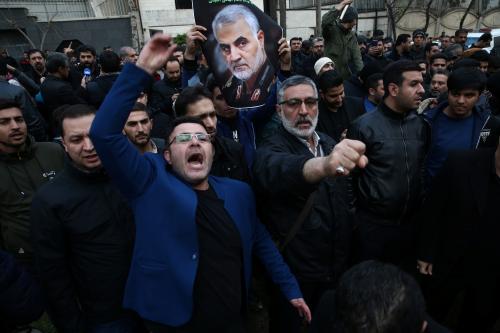For several years, President Obama has operated under a set of assumptions about the Middle East: First, there could be no return of U.S. ground troops in sizeable numbers to the region; and second, the United States had no interests in the region great enough to justify such a renewed commitment. The crises in the Middle East could be kept localized. The core elements of the world order would not be affected, and America’s own interests would not be directly threatened.
These assumptions could have been right, but instead they have proven to be wrong. The combined crises of Syria, Iraq, and the threat posed by the Islamic State (or ISIS) have not been contained. ISIS itself has proven both durable and capable, as the attacks in Paris showed. The Syrian conflict—with the resulting refugee flows—is destabilizing Lebanon and Jordan; it has put added pressure on Turkey’s already tenuous democracy; and it has exacerbated the acute conflict between Sunni and Shiite across the region. The multi-sided war in the Middle East has now ceased to be a strictly Middle Eastern problem. It has become a European problem, as well. The crisis on the periphery, in short, has now spilled over into the core.
Does this not call for a reassessment of the policies that have so far been tried in Syria and Iraq? Have not events in the Middle East, and now in Europe, reached the point where significant interests are at stake, thereby requiring a more substantial response by the United States?
Read Robert Kagan’s more in-depth article on the subject in the Wall Street Journal.
The Brookings Institution is committed to quality, independence, and impact.
We are supported by a diverse array of funders. In line with our values and policies, each Brookings publication represents the sole views of its author(s).








Commentary
U.S. leadership and the threat to international order
November 24, 2015